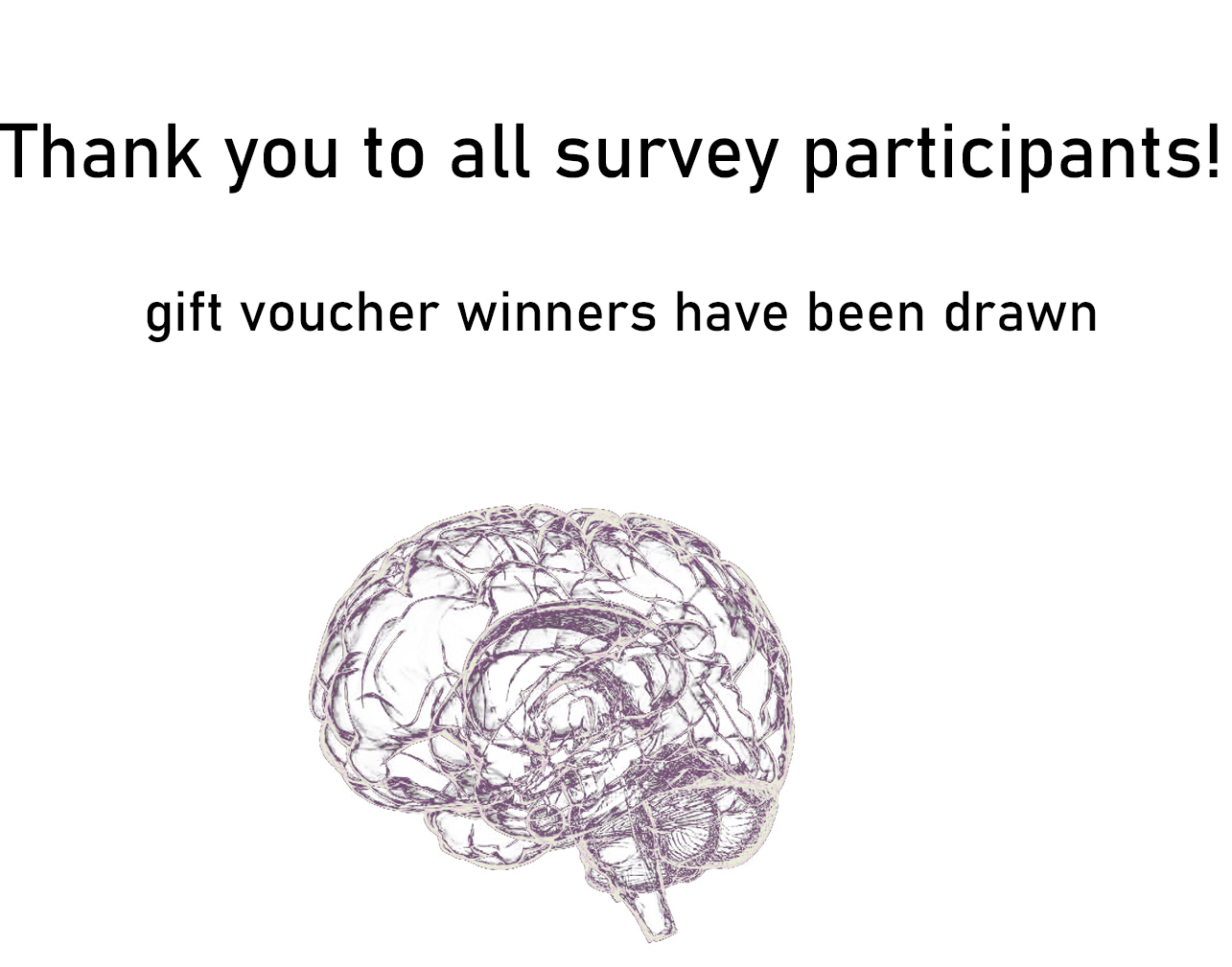There are a number of issues facing neuroscience research in Australia, including funding, the future research workforce and the public and government perception of neuroscience and research in general. Below are a number of documents relating to many of these issues.
Neuroscience teaching survey closed
We would like to extend sincere thanks to all participants of our survey “Neuroscience teaching at Australian universities”. The survey has now closed. We received responses from several hundred of our peers and we will be working to analyse the data in the coming months. The six winners of the gift vouchers, chosen using a random number generator, have been contacted and their gift vouchers sent.
We plan to publish the results of the survey in the teaching literature and also at the meeting of the Australasian Neuroscience Society in December 2022. If you have any questions about the survey please contact Prof Kay Double (This email address is being protected from spambots. You need JavaScript enabled to view it.).
Once again, thank you for your time in completing the survey and your interest in helping improve neuroscience teaching in Australia.
Prof. Kay Double & A/Prof. Gabrielle Todd

Lindy Fitzgerald in Homeward Bound - promoting a strong global collaboration of women in science
Only 15% of scientists at the highest levels are women. It has been demonstrated that diverse teams with an equal gender balance are more efficient, take more risks and solve problems more effectively. We need all the creativity, brain power and problem solving ability we can muster if we are to solve problems in neuroscience, science generally and beyond. It is therefore critical that women take an equal place at all levels of science leadership.
Lindy Fitzgerald is one of 78 women worldwide that have been selected to take part in an Australian led international leadership and strategy program designed to improve the number of women in higher levels of science. This world-first initiative is called Homeward Bound and is the start of a 10 year outreach to build a 1,000 strong global collaboration of women in science. The program is run as an expedition to Antarctica, where climate change is used as an example as to how women can make a pronounced difference in the world today. The expedition will be filmed for a documentary.
For more information and to support Lindy in her journey, visit her personal crowd funding page.

Global Neuroscience Advocacy Forum, July 2014
Here is a summary of a talk presented by Professor John Rostas at the Federation of European Neuroscience Societies (FENS) Forum in Milan, Italy (July 8, 2014) at a Global Advocacy Event organised by IBRO Global Advocacy Committee and the FENS Communications Committee. The event also included talks about advocacy activities in Canada, Spain, UK, and Belgium and posters about activities in Holland, Greece, Hungary, Italy, Lithuania, Ireland, Poland, Serbia and Slovenia.
Summary of Submission by Professor John Rostas, President of the Australian Neuroscience Society, to the 2012 McKeon Review of Health and Medical Research in Australia
Australia must nurture an internationally competitive health and medical research sector to:
- Manage the predicted future rise in health care costs
- Be an early adopter of research findings
- Benefit from commercialisation of research
- Be able to respond rapidly to emergencies
- Funding for research personnel has not kept pace with sector salaries
- Health and medical research should be allocated a predetermined proportion of the total health care budget
- A range of initiatives should be supported that are likely to lead to tangible benefits in the short, medium and long term
- Research funding should be allocated based on expert peer review
- Strategies and incentives need to be developed to encourage industry to increase funding for health and medical research
- Collaboration between universities, medical research institutes and hospitals needs to be encouraged; silos caused by multiple funding streams and legislative barriers need to be broken down
- The best students need to be attracted to careers in health and medical research
- Flexible non-linear career structures appropriate to multidisciplinary research teams need to be developed for researchers
- Funding initiatives are needed that will encourage large scale collaborative projects to generate the data sets necessary for personalised medicine
- A critical requirement for building the best health and medical research teams is effective communication and collaboration between clinicians and basic scientists (both biomedical and behavioural)
- The McKeon Review Committee should provide a second opportunity for public submissions on their draft proposals
- The full submission can be downloaded from here
Terms of Reference for the Health & Medical Research Strategic Review
Documents for the Public Consultation on the Code of Practice for the Care & Use of Animals for Scientific Purposes
Summary of Sarah Dunlop's discussions with ANS members in 2009
Stradbroke Island meeting
Outcomes from Stradbroke Island meeting
